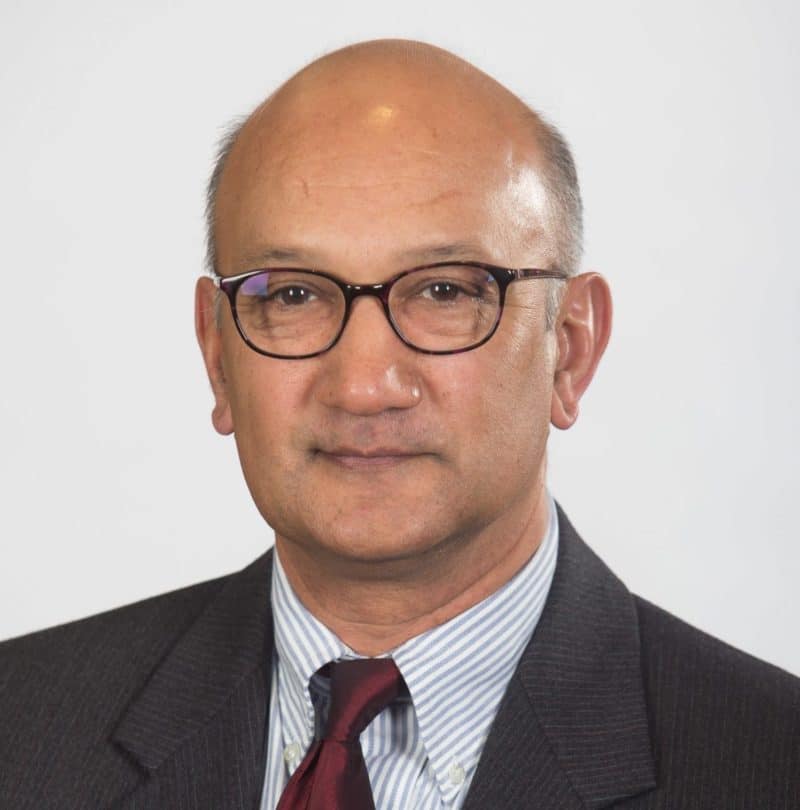Daya Reddy, an internationally recognised mathematician from South Africa, has been elected president of the International Science Council (ISC) at the Council’s founding General Assembly. Peter Gluckman of New Zealand became the President-elect.

Reddy was born in Port Elizabeth, South Africa. He obtained his Bachelor’s degree in civil engineering from the University of Cape Town, and a PhD degree from Cambridge University. He was appointed professor of applied mathematics at the University of Cape Town in 1989, and served as dean of its science faculty from 1999 to 2005. He currently holds the South African Research Chair in Computational Mechanics at the University of Cape Town, South Africa. He has served as President of the Academy of Science of South Africa, and is an elected Fellow of the African Academy of Sciences and of TWAS, The World Academy of Sciences.
He is currently co-chair of the research branch of the InterAcademy Partnership, a network of some 130 national science academies of science and health sciences. He has held numerous visiting positions, including those of Visiting Faculty Fellow at the Institute for Computational Sciences and Engineering at the University of Texas at Austin, and the Timoshenko Lecturer at Stanford University. He is a recipient of the Award for Research Distinction of the South African Mathematical Society, the Order of Mapungubwe from the President of South Africa, and of the Georg Forster Research Award from the Alexander von Humboldt Foundation of Germany.
“I am honoured by the confidence ISC members have placed in me at this historic juncture for international science,” he said, adding: “Our task is daunting, but unity is strength and I am confident that the combined forces of our membership across all scientific disciplines will enable us to meet the ambitious goal we have, to assert ourselves as the global voice for science.”
The ISC is a new global organisation representing more than 180 scientific organisations from all around the globe. The new Council will be the only non-governmental global body representing both the natural and social sciences, and results from the historic merger of the International Social Science Council (ISSC) with the International Council for Science (ICSU).
Led by a Governing Board, the Council will develop an impact-oriented agenda focusing on science for policy and policy for science, aimed at enabling international research coordination to contribute more effectively to major issues in the international public domain.
In his acceptance speech, Reddy spoke about the importance of inclusiveness, of involving all regions of the world in the work of the new Council. He called for the involvement of early career scientists in partnerships and agenda setting. “We have set ourselves an ambitious goal to be a powerful, visible, credible voice for science. There’s no time to waste. Let’s get to work!”
Reddy’s research interests lie in the domain of mathematical modelling, analysis and simulation in mechanics. He has made significant contributions to theories of complex material behaviour, and to the development of stable and convergent methods of computational approximation. He maintains an active engagement in biomechanics, including research into aspects of cardiovascular mechanics.
The Council was officially launched this week in Paris, during events hosted by the French Academy of Sciences. The programme includes a public-facing launch event featuring high level keynote speakers as well as representatives of the French government and the scientific community on July 5, 2018.
At the second General Assembly of the new Council, which will be held in Oman in 2021, the Presidency will pass to Peter Gluckman.
The further officers of the Board are Elisa Reis (Vice President), Jinghai Li (Vice President), Alik Ismail-Zadeh (Secretary) and Renée van Kessel (Treasurer). The ordinary members of the Board will be Geoffrey Boulton, Melody Burkins, Saths Cooper, Anna Davies, Pearl Dykstra, Sirimali Fernando, Ruth Fincher, James C. Liao, Natalia Tarasova and Martin Visbeck.
Earlier in the day, Gluckman, the former Chief Science Advisor to the Prime Minister of New Zealand, spoke about his vision for the Council in his remarks to participants before the vote.
He stressed that “The International Science Council must work to become the leading voice of science in leading fora of policy-making.” He added that “this requires a coherent and focused strategy asking where the Council is uniquely positioned – asking what the council should do, and what it should not do.”
The founding events of the International Science Council will continue tomorrow with a public launch event at the Maison des Océans in Paris, with keynote addresses by Cédric Villani, Esther Duflo, Ismail Serageldin, Craig Calhoun and many others.
The ISC is a non-governmental organization with a global membership of more than 180 organiszations, including national scientific bodies, International Scientific Unions and Associations, and Affiliated Members.
The ISC was created in 2018 as the result of a merger between the International Council for Science (ICSU) and the International Social Science Council (ISSC). This makes the Council the unique representative body of both the natural and the social sciences.
